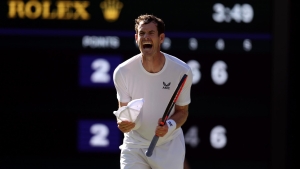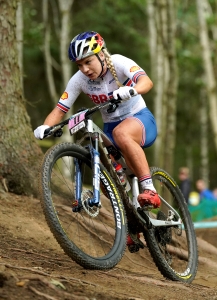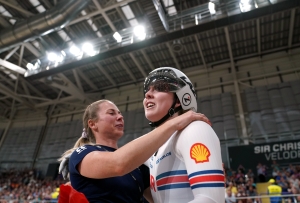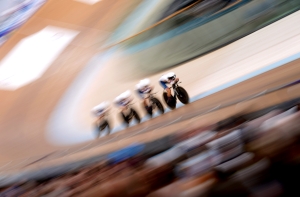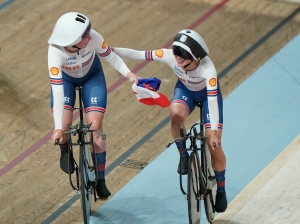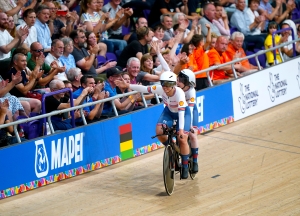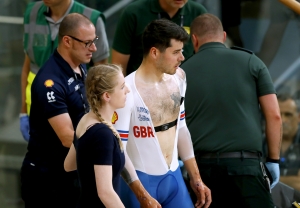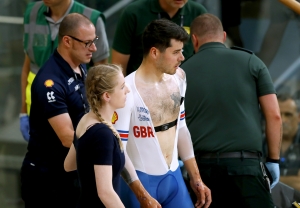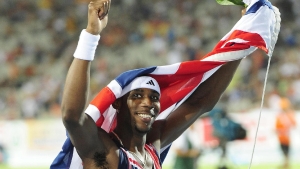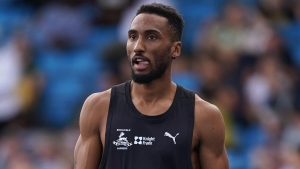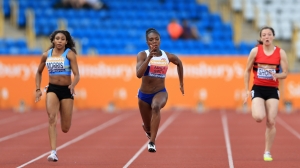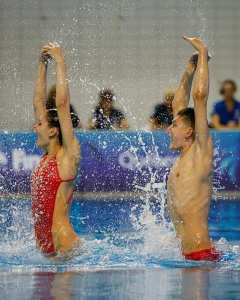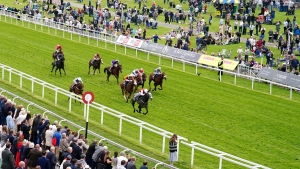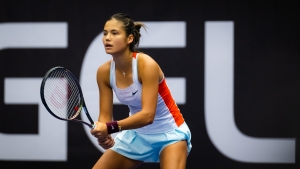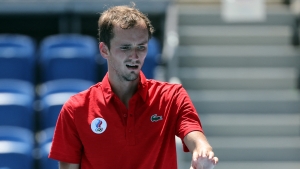Team GB’s first male artistic swimmer is thoroughly satisfied to have earned the respect of friends who once asked why he did not just play football like everyone else.
Ranjuo Tomblin is one of 12 British artistic swimmers hoping to top the podium at the European Games this week in Krakow, but the 17-year-old knows he will be making history no matter what the result.
When he and Beatrice Crass slip into the pool for Thursday’s mixed duet technical event, Tomblin will also be making his milestone senior debut with Team GB.
“Definitely my friends at the start were like, ‘Oh, why are you doing that? Why aren’t you doing football, you know, the generic sports?'” he said.
“But as I’ve grown and developed and I’ve got a few medals in the bank, they definitely more respect what I do, now they’re like, ‘Oh, that’s a really cool thing you do’.”
Tomblin’s ambitions to erase stigma and stereotype around his chosen sport, once known as synchronised swimming, extend well beyond his circle of friends.
Artistic swimming is, like a duck gliding smoothly across a lake, an illusion of effortlessness when in reality it is anything but. Asked about the biggest misconception people hold, Tomblin’s answer comes immediately.
“That it is easy,” he said. “It’s not easy. A lot of people just think it’s having a play about in the water. It’s really not.”
View this post on Instagram
A post shared by Ranjuo Tomblin (@_ranjuo_synchro)
Training comprises working on everything from strength and conditioning to flexibility, knee extensions, toe points, breath-holding, swimming, stamina and timing.
Consider the feeling of, as American synchro coach Joyce Lindeman once put it, “running a marathon while holding your breath”.
Also it is set to music, and you are judged on how good you look doing it.
Tomblin spent nearly a decade in gymnastics and it was only by fluke that the woman coaching his “normal” swimming lessons at Atlantis Flamingos also happened to be the synchro coach.
Hearing about his gymnastics background, she asked if he wanted to give artistic swimming a go.
“I immediately loved it. It’s really grown from there,” said Tomblin, though he admits there was an adjustment period, adding: “It definitely did feel a bit weird, especially with the first team I joined.
“There were no boys, it was full of girls and it was a bit awkward and it was hard to make friends, but I feel like after I joined the national squad everyone’s really lovely. We’re all good friends.”
A landmark December 2022 World Aquatics decision paved the way for male artistic swimmers to compete at next summer’s Paris Olympics, which will now allow up to two men in the eight-athlete team event.
Tomblin won silver at the inaugural male free solo event at the 2022 LEN European Junior Championships as well as bronze alongside Cass and, while he is certainly open to the possibility of the team event, mixed duet – appearing for the first time at a European Games – is Tomblin’s speciality.
Mixed duet is not on the programme for Paris, but December’s announcement allowed Tomblin to be cautiously optimistic that his event could feature at the 2028 Games in Los Angeles.
“When I first heard that, I felt really excited and hopeful,” he said. “Because now they’re like, ‘Oh there’s loads of boys so let’s let them in the Olympics’… then hopefully that will lead towards the mixed duet going into the Olympic Games.”
While records will fall and champions change, there can only ever be one person who does something first, and Tomblin is delighted by the role he could play in ensuring he will not be the last.
“It would mean so much to me,” he added. “I’m working so hard because I’ve seen males older than me, like (Team USA’s) Bill May. I look up to him and he inspires me so much. I’d like to inspire someone – that would feel really nice for me.”























